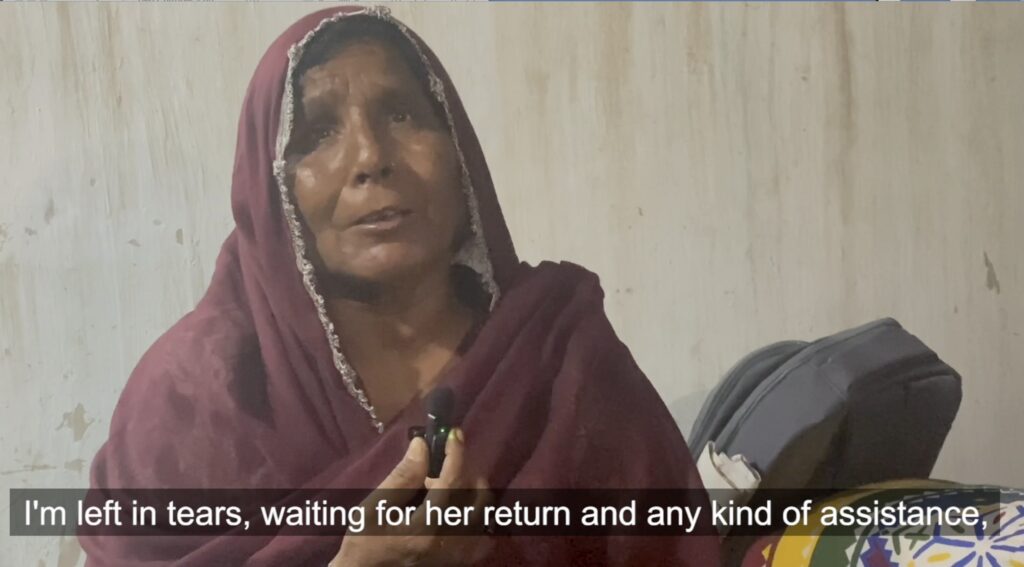
‘We are Hindus. Shoot to kill us, but don’t take our children away from us by force. We have no other demand; we simply beg for the safety and protection of our children.’
These heart-wrenching words were shared by Amree Maharaj as she recounted the alleged forced conversion of her daughter, Chanda Maharaj, aged 14. Amree, aged 50, lives with her two other daughters and elderly husband in a rented one-room house, situated on the outskirts of a dirty and unpleasant pond in the slums of Hyderabad, the second largest city in the southern province of Sindh, Pakistan.
[Extract from Korai’s interview with Amree here.]
In addition to Chanda, Amree is equally concerned about the well-being of her two other daughters, Sona, aged 17, and Bhagwati, aged 16. Their mother fears that they too might be forcefully converted to Islam: underage Hindu girls are always in danger. When I interviewed her in April for the Freethinker, Amree told me that she would prefer them to be married early to Hindu men rather than forcibly converted to Islam. If the girls are taken, she says, ‘I cannot bring them back. No one comes to our help.’
Amree, who looks older than her age due to malnutrition and stress, tearfully related how her daughter Chanda was forcibly converted to Islam by a Muslim man. She firmly believes that Chanda, who loves her family, would not have willingly left them.
Chanda Maharaj appeared before a local court in Hyderabad in February 2023 after repeated protests against the police by her family and human rights activists. Since she was underage, and the provincial law prohibits marriage before 18, the court sent her to a safe house. But since then, Chanda’s family has lost track of her.
Amree’s family is Dalit: the lowest caste in Hindu society, who often face discrimination in terms of education, employment opportunities, and access to basic necessities. For many Dalit families and others from religious minorities, the risk that their daughters will be forcibly converted to Islam is a serious and ongoing concern. In Pakistan, more than 96 per cent of the population are Muslim. The constitution guarantees freedom of religion. However, there is no legislation against religious conversion of any kind, so long as it is (supposedly) unbiased and voluntary.
Chanda and her two sisters were employed at the same textile mill near their home. They earnt only 1. 25 USD each per day, with which they supported their parents (their father is unable to work due to physical weakness, and their mother is a housewife). On 12th December 2022, all three sisters went to work – but only two returned home in the evening.
Despite their efforts, Chanda’s family were unable to locate her. This led them to believe that she had undergone a forced conversion, as similar incidents had occurred before involving young Hindu girls.
Chanda’s sister Bhagwati, two years older than her, met the family and her sister in court and scolded them for not contacting Chanda sooner. She found her younger sister fearful and trembling when she appeared before the court. When Chanda’s lawyer suggested sending her to a safe house run by the provincial government, which is designed to offer refuge to women in need, Bhagwati was dismayed. She held her hands together, as if praying, and begged the state authorities to send her younger sister home.
* *
Forced conversion to Islam remains an ongoing issue in Pakistan. It particularly affects underage girls in religious minorities, including Hindus, Christians and others. Another victim of this practice was Rinkle Kumari, 19, from the town of Mirpur Mathelo, who was abducted, forcibly converted to Islam and married in 2012.
Kumari’s case was heard at all levels, from the local court to the Supreme Court of Pakistan. In an effort to ensure her safe return, and despite numerous threats from her kidnappers, Kumari’s maternal uncle, Raj Kumar Wanjara, fought for her cause.
When I interviewed him, Wanjara claimed that Kumari consistently expressed her desire to be reunited with her mother throughout the legal proceedings. However, regrettably, she was unable to achieve success in her plea: instead, she was handed over to Naveed Shah, the Muslim man who claimed to be her husband after her conversion.
[Extract from Korai’s interview with Wanjara here.]
According to Wanjara, while Kumari’s statement was recorded in the Supreme Court of Pakistan, it was recorded not by the judge, as would usually be the case, but by the court registrar, because the judge refused to do it. This raises serious doubts as to the claim made by their opponents that her alleged free decision to stay with her new husband was in fact made without external pressure. When the highest authorities responsible for justice in Pakistan exhibit such behaviour, says Wanjara, it raises the question of whom families like his should turn to in order to obtain justice.
The quest for justice for their cherished niece took a devastating toll on Wanjara’s family, resulting in hardships and break-up. Some family members were compelled to seek refuge in India, while others were settled in Karachi. In addition, their once-thriving business in Mirpur Mathelo, their hometown, incurred substantial losses and was ultimately forced to close.
As a result of his attempts to rescue his niece, Wanjara himself says that he has encountered numerous challenges and threats. These include extortion attempts by the Taliban and threatening phone calls from Afghanistan while he was conducting his business in Karachi.
The forced migration from Pakistan, the persistent threats, the fear and the anguish, took a heavy toll on Wanjara’s father, Manohar Lal, who suffered a heart attack at the age of 70.
Wanjara vividly recalls the last words his niece spoke to the local media in 2012: that she would never receive justice after being forcibly married to a Muslim man against her wishes. He last saw her in the Supreme Court on the day, over a decade ago, that the court handed Kumari over to Shah. Since then, Kumari’s family have not seen her and do not know where she is. When her father passed away, she was not even able to attend the final funeral rites and ceremonies. Her last words have been echoing in her uncle’s mind, haunting him in his daily life.
Just a week after our interview, Wanjara unexpectedly passed away in Houston.
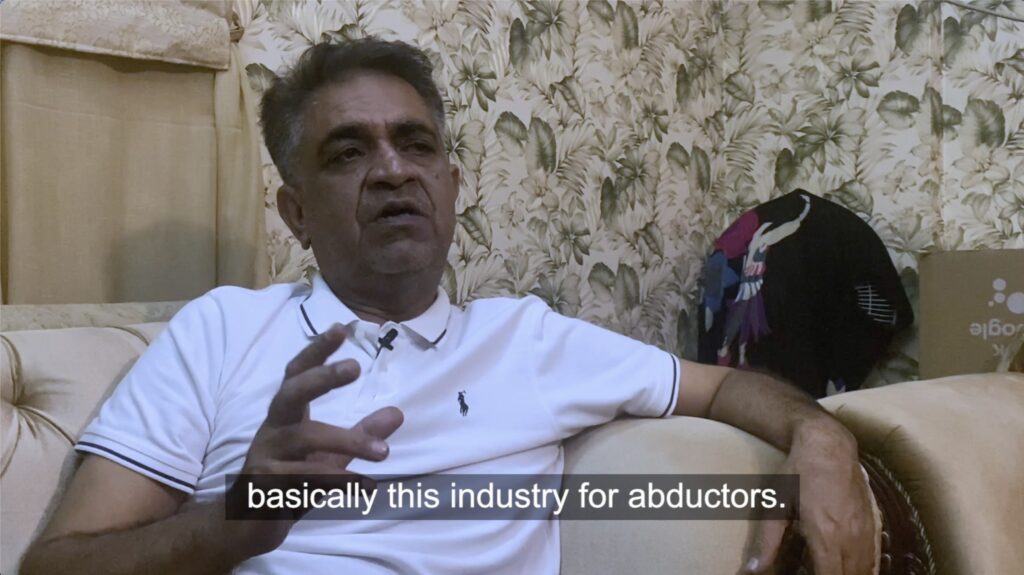
* *
The province of Sindh in Pakistan is home to the majority of Hindus, who are recognised as an indigenous group. Two districts within the Thar desert, Umer Kot and Tharparkar, have a significant Hindu population, approximately 54 per cent and 43 per cent of the districts respectively.
Two Muslim clerics actively and vocally involved in the conversions are Mian Abdul Haq, known as Mian Mithu, of the Bharchundi shrine in the northern part of Sindh, who last year was banned from entering the UK for ‘violations and abuses of human rights’, and Pir Ayub Jan Sarhandi, in the part on the border with India. Additionally, numerous lesser-known clerics have also been allowed to perform conversions without any intervention from state authorities.
Sarhandi, whom I interviewed for this article, emphasises his family’s commitment to promoting and upholding Islam. He strongly denies targeting Hindus and emphasises Islam’s teachings of harmony, coexistence and inclusivity. He believes that conversion serves the cause of Islam. He claims that those who convert are genuinely impressed by Islam. Muslim clerics maintain that the conversions are voluntary and based on the individual’s admiration for their religion.
* *
However, religious minorities in Pakistan, especially Hindus, have in recent years felt increasing fear about the risk of forced conversions to Islam. While this phenomenon has existed in Pakistan for many years, it experienced a significant surge during the Afghan war, with the emergence of Pakistan’s jihadi wave. Since then, the pace of conversions appears to have been escalating, perhaps in part due to social media. Mian Mithu was himself a member of the National Assembly from 2008-13 with the support of his political party, the Pakistan People’s Party; after the Kumari incident, the PPP expelled him from the party and cancelled his membership.
As a result of the risk of conversion, many Hindus have chosen to migrate to India to seek a safer environment. Mohan Lal, an activist from Lyari, one of Karachi’s oldest localities, told me in an interview last month that forced conversions have reached a shocking level: in the last 20-25 years, around 200 families from the area have left and settled in Gujrat India.
Lal himself was kidnapped twice after he encouraged the community, when two girls had been kidnapped and forcibly converted, to register their cases with the police. ‘Sadly, the state is not on our side, which is why all this is happening,’ he said.
Wanjara attributes the discriminatory mindset against Hindus to a deep-rooted hatred for Hindus among extremist Muslim groups, leading to the effective ‘silent genocide’ of Sindhi Hindus in Pakistan, who are in practice either eradicated or forced to migrate to India. And all this, he argues, is going on under state sponsorship.
Wanjara also makes the point that it seems implausible that Hindu girls, who have no knowledge of Islam, would be sufficiently ‘impressed’ by it, as Sarhandi claims, to run away from their families and convert. He emphasises that there is a significant degree of freedom available to girls within their own community, including the liberty to select their own life partners and to engage in activities like dance and music. He argues that it is improbable that these girls would choose to move to a Muslim environment that would place extreme restrictions on them.
For his part, Amar Lal Karnani Menghwar, the Hindu organiser of of Pakistan Darawer Ittehad, a minority rights organisation, would not rule out the claim that the conversions to Islam are often forced, but argues that, in some cases, girls convert willingly. The girls who are targeted with forced conversions and subsequent marriage to Muslim men are driven by deception, poverty and lack of security. Underage girls, Menghwar argues, are easily influenced by unscrupulous clerics who exploit their dreams of a better life.
* *
Numerous research papers have been published on the issue of conversion in Pakistan. Two notable ones are ‘Forced Conversion of Religious Minorities in Pakistan: A Socio-Cultural Perspective’, a position paper by the Catholic Commission for Justice and Peace (whose name has since substituted ‘National’ for ‘Catholic’) in collaboration with the European Union, and ‘Forced Conversion of Minorities in Pakistan and Legal Challenges’ by academics Aisha Rasool and Kamran Abdullah. According to a 2010 estimate, approximately 20-25 Hindu girls were forcibly converted to Islam every month in Pakistan; as Rasool and Abdullah show, the practice has certainly not stopped since then. Motives behind these forced conversions include the confiscation of property, the aim of displacing religious minorities, retaliation or revenge targeting females, sexual desire, pressure from extremist groups, and self-glorification.
In interviews conducted for the CCJP-EU report, ten girls from different regions were selected as case studies. Nine of them shared their experiences of being abducted and coerced into converting, and later forced to marry their abductors, while only one claimed that her coercion was not forced. The research also highlights the case of two underage Dalit girls named Reena and Raveena, who were recorded reciting the Kalima (Islamic declaration of faith) while still having (Hindu) Holi colours on their cheeks.
* *
Currently, Pakistan does not have a specific law in place to regulate religious conversions. In December 2016, the Sindh provincial assembly in Pakistan passed the Criminal Law (Protection of Minorities) Act 2015. This prohibits forced religious conversions and restricts children from converting until they reach the age of majority (18).
Religious political parties of Pakistan opposed the legislation, especially section 4(1), arguing that it contradicts Islamic principles. The governor of Sindh has since regretted his assent and returned the Act to the assembly for reconsideration. It currently remains in this state of limbo; Muslim religious parties are demanding its repeal while the Hindu minority support it. The Muslim opposition to the law is despite the fact that under the International Covenant on Civil and Political Rights (ICCPR) and the Universal Declaration of Human Rights (UDHR), to which Pakistan is a signatory, the state is obliged to uphold commitments against forced conversions. The ICCPR, in Article 18(4), recognises the right of parents to determine their child’s religion until they reach adulthood; Pakistan is among the signatories to this convention.
In 2019, while Imran Khan was Prime Minister of Pakistan, he established a parliamentary committee to resolve the issue of forced conversion. However, no progress was made in drafting legislation. Senator Lal Malhee, a member of the committee, subsequently revealed that Muslim members of the committee were unwilling to act because of pressure on the ruling party Pakistan Tehreek Insaaf (PTI) from extremists. The committee was subsequently abandoned.
* *
In Pakistan, the absence of a law about conversions to Islam or official oversight of the process enables conversions to be made informally by any cleric, who can simply recite the Kalima and declare the person converted to be a Muslim; there is also no lower age limit, so even minors can be lawfully converted. Critics argue this process is being manipulated and exploited.
Clearly, the state is failing to protect religious minorities in Pakistan against forced conversion to Islam. As a result, Hindus have resorted to alternative measures, such as early marriages, to safeguard their children.
Wanjara emphasises the severity of the situation: Hindu communities may even resort to extreme measures, including killing their daughters, to avoid them being converted against their will and married to Muslims.
In Thar Gawaria and Karia, two Hindu communities in Sindh, early marriages are prevalent as a protective measure: daughters as young as ten may be married off to avoid the risk of forced conversion and marriage outside the community. Karnani Menghwar claims that there have been no reported cases of individuals converting to Islam for three decades: this appears to be because children are married within the community early.
* *
Dr Shershah Syed, a renowned gynecologist specialising in fistula repair, spoke to me about the consequences of underage marriages, particularly the risks associated with early pregnancies. Underage marriage can be perilous, he explains, especially during childbirth, as it increases the likelihood of complications such as pelvic fractures and obstetric fistula. In Pakistan, thousands of women suffer from obstetric fistulas each year – a 2013 estimate put the figure at 4,500-5,000. Underage marriage can also have long-lasting and harmful psychological effects.
These risks, Syed argues, must be addressed in order to safeguard the health and wellbeing of young girls involved in underage marriages.
Dr Farhana Malik, a professor in the Psychology Department at the University of Karachi, emphasises that child marriage is distressing and harmful, depriving young girls of their rights and personal development. These girls are forced into adult roles without the necessary understanding, emotional maturity, or physical readiness. This negatively impacts their physical and mental health, as well as their access to education and personal growth.
The practice of underage marriage has severe consequences on girls’ mental and emotional well-being, often resulting in fear, anxiety, depression and confusion. They also face a higher risk of domestic violence, says Malik, and may be at risk of suicidal thoughts.
Muslim clerics hold differing opinions on child marriage, with some advocating for its legitimacy based on their interpretation of Sharia law. The cleric Sarhandi, for instance, has criticised laws forbidding marriages below the age of 18 in Sindh, considering such laws a violation of Sharia principles.
He argues that nightfall (nocturnal emissions), or the onset of menstruation, are indicators of maturity and therefore marriageability according to Sharia, even if they occur well below the age of 18.
While compiling this story, I read about another incident involving a 14-year-old girl named Sohana Sharma Kumari that was brought to light earlier this month. She was allegedly abducted with the intention of forced conversion, and she is seen in a video clip crying out to be reunited with her parents.
The continuing practice of forced conversion and marriage in southern Pakistan is causing a significant divide and fostering animosity between the Muslim and Hindu communities. In Sindh, supposedly a province where the majority of Muslims and Hindus have love and respect for each other, extremist religious groups are responsible for this situation. Even Sindhi nationalist political parties in Sindh condemn such conversions.
To resolve this problem and stop the damaging practice of forced conversion and marriage of young girls, many people believe that the state should intervene and legislate about conversion practices. It is not only a question of young girls being converted and married to Muslims; the alternative, in which their frightened families marry them off underage to other Hindus to prevent them being married to Muslims, may well also cause them harm, and certainly takes away their autonomy. In addition, both Muslim and Hindu customs make it very difficult for women to pursue education after marriage: once they are bound to a man, they usually have little option but to raise children and look after the home.
Altogether, underage marriages pose harm to women from both Muslim and Hindu communities. It is high time something was done to stop them.
Enjoy this article? Subscribe to our free fortnightly newsletter for the latest updates on freethought.


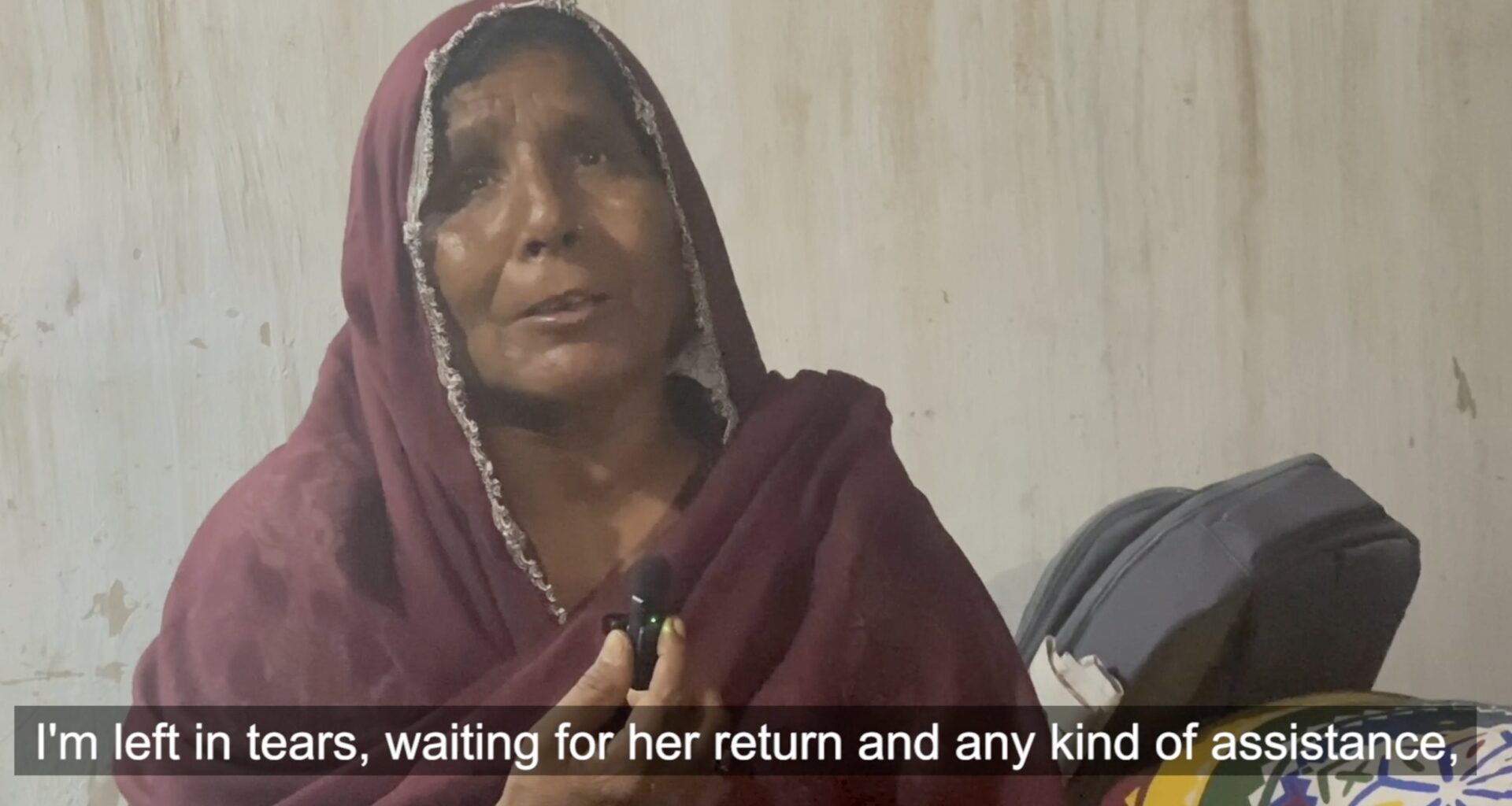
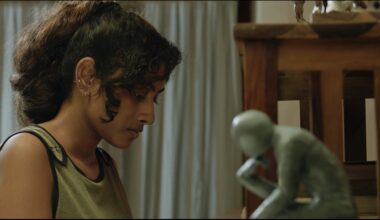
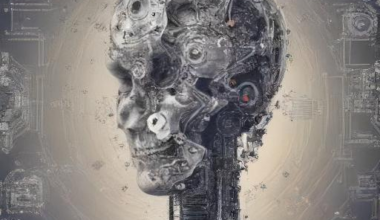

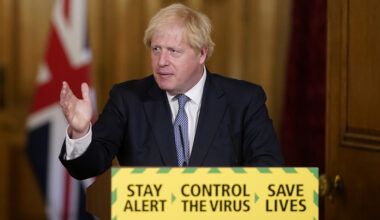
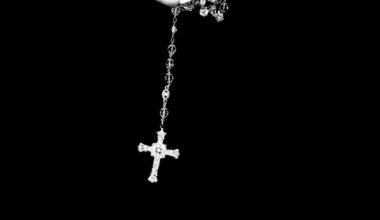
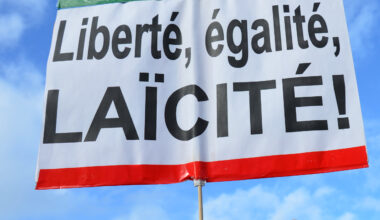
2 comments
Very nice and important news story of human rights.
Amree Maharaj’s story is sadly common among the Dalit and religious minorities of Pakistan. Her courage and resilience to keep fighting for her daughter Chanda is inspiring and worthy of respect. Women like her must be protected and continue to be recognized for their bravery in the face of injustice.
Your email address will not be published. Comments are subject to our Community Guidelines. Required fields are marked *
Donate